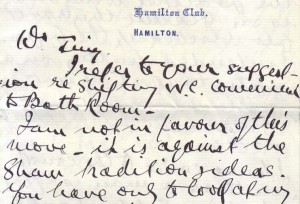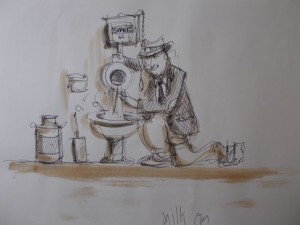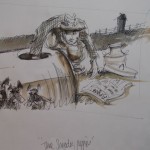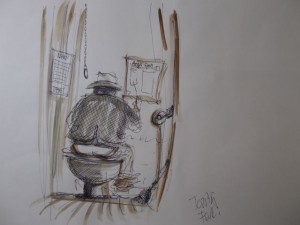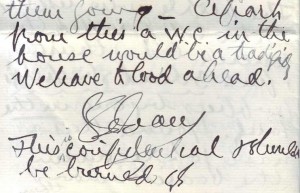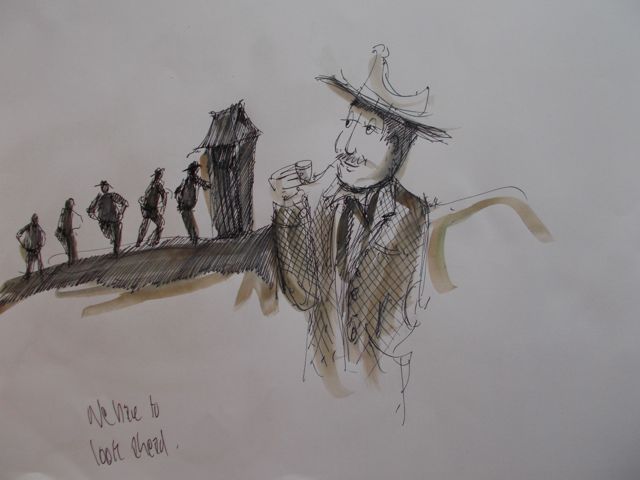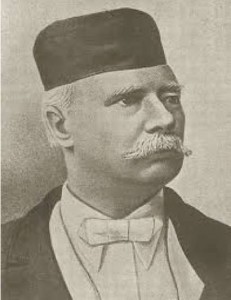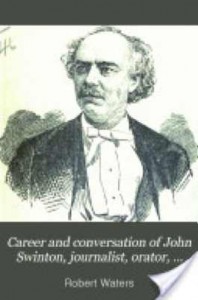By Sir Atney Emo
I write these words knowing that a wave of happy activity is washing right across our vast land. While arches of red, white and blue bunting are draped across inner city streets, hundreds of country hamlets enthusiastically share a holiday celebration: the Queen’s Birthday!
Surrounded by this out-swelling of communal joy, I reflect on the many reasons why the Queen of Australia’s continuing presence in the lives of loyal Antipodeans should remain ever unchanged.
‘If It Ain’t Broke…’
All around us, we can see the consequences of the needless tampering which replaced workable institutions and systems with what is now seen to be problematical. Consider the dubious advantages of, for example, granting suffrage to women, taking our currency off the gold standard, metric-mania – and then doing away with perfectly serviceable farthings, ha’pennies, pennies, thrupennybits, tanners, shillings, florins, half- crowns, pounds and guineas simply to fall in with the Napoleon-inspired mania for decimalisation!
Against its mythical benefits, just consider the great upheavals involved in becoming a republic. Here is just a small sample:
- – We would have to remint our coinage
- – We would lose an annual public holiday (the Queen’s Birthday)
- – Without the Queen’s Birthday Honours List, merit would go unrecognised
- – Half of our hospitals, pubs and golf courses would be renamed
- – Centenarians would no longer receive royal telegrams (or is it emails now?)
- – RSL clubs would have to revarnish now-empty spaces on their walls
- – Many charities and organisations would drift around without a patron
- – We would have no one to toast at important occasions
- – Dog pounds would fill up with unwanted corgis
Who Would Respect an AUSTRALIAN Head of State?
For all their singular and sterling qualities, Australians are widely known to be deficient in the qualities of gravitas and dignitas so indispensible for a head of state representing their nation on the world stage. Frankly, our instinctive disregard for ceremony and ritual, rank and hierarchy puts us at a disadvantage in international conclaves, especially when this is compounded by our habitually unsubtle and informal modes of addressing individuals of stature. No, we are much better served by leaving such dealings to those who have been trained from birth to properly discharge these duties – and can sit at a state banquet table comfortably confident as to which implement or glass to use and when. Especially, they could be relied upon not to outrage protocol by sketching out a suggested trade agreement on the back of a menu!
Our Head of State Should Be Above Religion
Thanks to our monarch’s position as head of the established church, Australians never witness unedifying sectarian debates about our head of state’s religion, such as reappear at every American election. With this issue long settled, we have been spared the horror – to take an example – of an Australian head of state of Irish Roman Catholic background representing us to dignitaries like the US President, the Italian Prime Minister or the Pope. Knowing that they can never be head of Australia no matter who they marry, our Catholics, the Orthodox, Jews, Muslims, etc., simply ignore the issue and get on with being good taxpayers. In the meantime, because the Church of England is such a tolerant and flexible faith, encompassing homosexual and female priests (or both together), scriptural scepticism and even atheism, no one need ever worry about heretical purges, pogroms or fatwahs.
No Knights or Dames in a Republic
Let’s face it, the Order of Australia and the lesser decorations have never really taken off: they are bunyip gongs for a bunyip aristocracy. They recognise merit, it is true, but inspire neither awe nor reverence – and certainly do nothing to promote respectful deference to the one so honoured. The fact is that only a British honour or title, and nothing less, can be counted upon to establish precedence here or anywhere else around the world. Otherwise, you might just as well wear the sash of Nyasaland’s Order of the Golden Tusk. The only way to ensure that worthy Australians can be rewarded
with a knighthood or a damehood is to retain the British Monarch as our head of state! Surely that is a privilege worth the safeguarding?
Glamorous Young Royals Visit Us
Having foolishly cut themselves off from the majesty and pomp of a monarchy, Americans had to settle for the vulgarity and dross of pop celebrity culture – and all the social ills that go with that. By contrast, Australia plays flag-waving host to a regular procession of charming royals projecting themselves to us as ‘modern’, ‘in-touch’ and ‘popular’, while also promoting UK industry and commercial interests. We are pleased and proud that they journey so far to soak up much-needed vitamin D while their envious compatriots endure another bleak and sun-bereft British winter! As their tab- paying hosts, we get to hear nice things said about us, are reminded of our important position in the Commonwealth, and are flattered about our cricketing prowess. Above all, the mere fact that the ROYALS have made time to visit this distant dominion gives us a sense of place and relevance in the big world beyond. Meanwhile, media news editors can go on golfing holidays, confident that for the next week or two each day’s lead story will focus on exactly the same subject. Yes, Australia is lucky in that so many of our UK visitors are young royals (and not lager-swilling football hooligans, for example).
Encouraging Respect for Our Betters
In this age of narcissistic self-regard and entitlement, society (the young, especially) desperately needs reminding that there still are those who, unarguably, are our superiors! Who better than a monarch to remind us that, for all of democracy’s pretensions, we each have a properly ordained place within the social hierarchy – and that that this ranking is not set only by mere, passing merit? Inheritors of great wealth and social primacy, the royal family are safely assumed to be above financial interest and the seeking of preferment – and are therefore the only trusted custodians of their subjects’ best interests. More than that, by their behaviour, deportment, family values and commitment to duty, they serve as an excellent model for us all.
Giving the Media Something Interesting to Focus Upon
Every day, newspapers and television confront us with the same boring topics: the state of the economy, global warming, drug-resistant diseases, world poverty, an international crisis here or a calamity there: there is always something to worry about. Luckily, the Royal Family gives us an endless supply of feel-good stories to distract us from all that misery! Romances, engagements, weddings, pregnancies, births, christenings, problem teenagers and divorces: all the fascinating, magical events that are missing from our own humdrum lives!
The Monarchy Unites Us as a Nation
With four major football codes, three standard time zones and who knows how many railway gauges, Australia is clearly a dangerously fractured society. Why, even on the nomenclature of luncheon meat sausage, consensus is frustratingly elusive: what is called ‘polony in Western Australia is ‘windsor’ in Queensland, ‘fritz’ in South Australia and ‘belgium’ or ‘devon’ in the eastern states of Victoria, Tasmania, New South Wales. Without the unifying influence of the Queen of Australia, the small, but dispersed, population of this sprawling island continent would have sunk into internecine warfare long before now. Quite simply, the House of Windsor (the Royal family, that is, not the Queensland sausage) is our surest bulwark against anarchy and chaos. Remember, England’s only civil war was in the brief period when it was a republic – and, unlike the USA, monarchist Canada has never had a civil war!
Royal Powers Can Help Eject Elected Leaders
Not a tank rumbled, not a shot was fired and not even a cobblestone was prised from a street to remove our elected government from office in 1975. All it only took was the reading of a letter of dismissal from the Queen’s representative, Governor Sir John Kerr, and a compliant nation straight away fell into line with its sovereign’s dictate. In contrast to this orderly and bloodless transition, imagine how it would have been in a South American republic! Bombs dropped on the presidential palace, curfews, round-ups, snipers shooting, runs on banks, mayhem and carnage! No, a monarchy serves the best interests of this happy land, now and always.
Other Nations Envy Us!
While our revered liege may be exiled on the other side of the globe, as subjects of the British Throne we share the prestige and influence of the mightiest, most prestigious empire in history. Less privileged nations, jealous of our imperial prerogatives, know that to threaten a single dominion is to invite the certain retribution of the entire British Commonwealth, just as when the Fleet’s ironclads projected order and civilisation across the world’s oceans. Or when the Falklands crofters were dispossessed. So, loyal sons and daughters of the Queen of Australia, stand proud on this day knowing that we are no mere citizens, but are… subjects!
Sydney, Queen’s Birthday – 9th June, 2014

